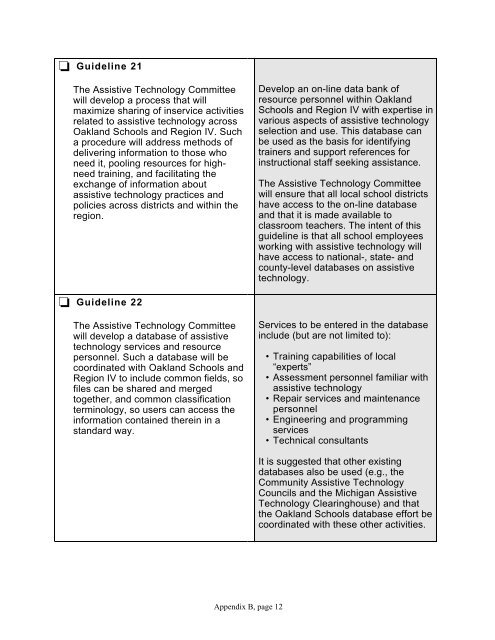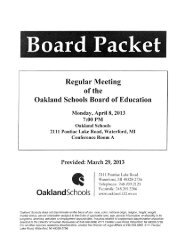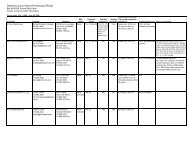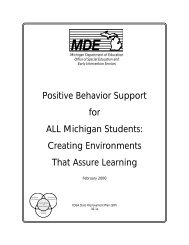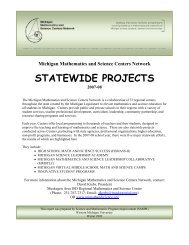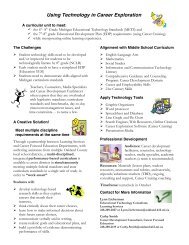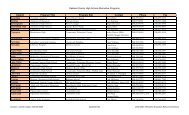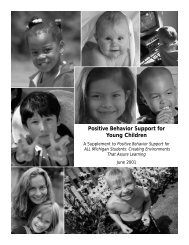Oakland Schools ASSISTIVE TECHNOLOGY GUIDELINES
Oakland Schools ASSISTIVE TECHNOLOGY GUIDELINES
Oakland Schools ASSISTIVE TECHNOLOGY GUIDELINES
Create successful ePaper yourself
Turn your PDF publications into a flip-book with our unique Google optimized e-Paper software.
❏ Guideline 21<br />
The Assistive Technology Committee<br />
will develop a process that will<br />
maximize sharing of inservice activities<br />
related to assistive technology across<br />
<strong>Oakland</strong> <strong>Schools</strong> and Region IV. Such<br />
a procedure will address methods of<br />
delivering information to those who<br />
need it, pooling resources for highneed<br />
training, and facilitating the<br />
exchange of information about<br />
assistive technology practices and<br />
policies across districts and within the<br />
region.<br />
Develop an on-line data bank of<br />
resource personnel within <strong>Oakland</strong><br />
<strong>Schools</strong> and Region IV with expertise in<br />
various aspects of assistive technology<br />
selection and use. This database can<br />
be used as the basis for identifying<br />
trainers and support references for<br />
instructional staff seeking assistance.<br />
The Assistive Technology Committee<br />
will ensure that all local school districts<br />
have access to the on-line database<br />
and that it is made available to<br />
classroom teachers. The intent of this<br />
guideline is that all school employees<br />
working with assistive technology will<br />
have access to national-, state- and<br />
county-level databases on assistive<br />
technology.<br />
❏ Guideline 22<br />
The Assistive Technology Committee<br />
will develop a database of assistive<br />
technology services and resource<br />
personnel. Such a database will be<br />
coordinated with <strong>Oakland</strong> <strong>Schools</strong> and<br />
Region IV to include common fields, so<br />
files can be shared and merged<br />
together, and common classification<br />
terminology, so users can access the<br />
information contained therein in a<br />
standard way.<br />
Services to be entered in the database<br />
include (but are not limited to):<br />
• Training capabilities of local<br />
“experts”<br />
• Assessment personnel familiar with<br />
assistive technology<br />
• Repair services and maintenance<br />
personnel<br />
• Engineering and programming<br />
services<br />
• Technical consultants<br />
It is suggested that other existing<br />
databases also be used (e.g., the<br />
Community Assistive Technology<br />
Councils and the Michigan Assistive<br />
Technology Clearinghouse) and that<br />
the <strong>Oakland</strong> <strong>Schools</strong> database effort be<br />
coordinated with these other activities.<br />
Appendix B, page 12


